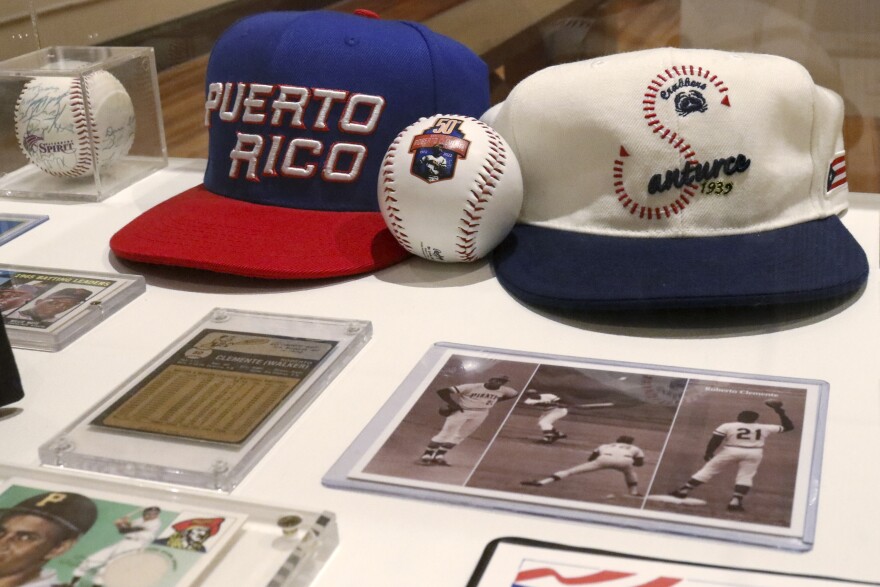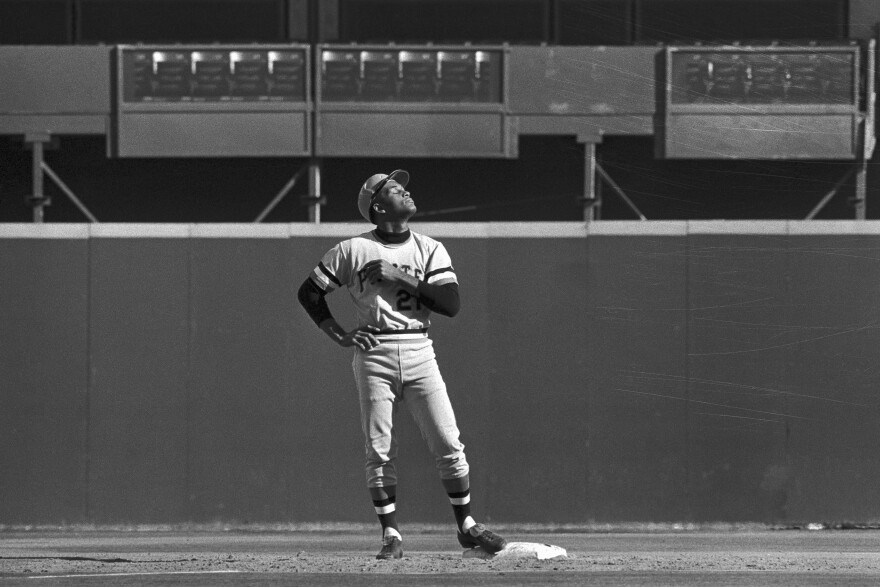Local baseball fans say a must-see exhibition opened at the Mattatuck Museum in Waterbury this month. The Roberto Clemente Life and Legacy exhibit highlights the Afro-Boricua baseball star.
Clemente played 18 seasons for the Pittsburgh Pirates Major League Baseball (MLB) from 1955 to 1972. During his life, Clemente also did humanitarian work in Latin American and Caribbean countries.
The exhibit includes Clemente's historical artifacts, artwork, photographs, and memorabilia — a collection owned by Connecticut State Rep. Geraldo Reyes, a long-time fan of Clemente and Waterbury native.
According to U.S. Census data,about 40 percent of people in Waterbury identify as Hispanic or Latino.
Reyes said the exhibit aims to unite the Hispanic community by inspiring them through Clemente's humanitarian work.

"My goal is to bring Spanish-speaking kids here that may or may not know about Roberto Clemente. The baseball story everybody knows, but the humanitarian and the civic engagement piece not everybody knows,” Reyes said. “That he marched with Dr. Martin Luther King Jr., that he was civically engaged, that he stood for social justice. That he did not like that there was so much racism in this country."
Clemente paved the way for newer Hispanic players. In 1973, Clemente became the first Latino of Puerto Rican origin inducted into the National Hall of Fame.
In 1972, Clemente died in a plane crash while heading to Nicaragua, bringing aid to the victims of an earthquake. He was just 38.
Jeremiah Vargas, who was among the 80 guests who attended the exhibit opening in June, is of Puerto Rican heritage. He also co-founded Tater, a Waterbury family-owned baseball bats company. Vargas said he is proud of Clemente’s legacy, including his social justice work and passion for sports.

"Roberto Clemente is deeply rooted in baseball. You'll see the number 21 wherever you go on the island,” Vargas said, speaking of Puerto Rico. “ A lot of people are very passionate about baseball and especially the players that represent the sport itself."
The exhibit appeals across the state, as Connecticut has a strong tradition of supporting minor league baseball teams dating back to the 1800s. Waterbury, Hartford, and New Britain were among the first towns to embrace minor and professional league baseball in the state.
Luis Irizari is also from Waterbury and has Puerto Rican origins. He is also a baseball fan. He said he is proud to see Puerto Ricans unite to honor Clemente's sports and humanitarian work to newer generations.
"Even today, he is an idol for a lot of the kids," Irizarry said. "And I try to teach my grandson about who Roberto Clemente was as a humanitarian, which is the biggest part of his life."






